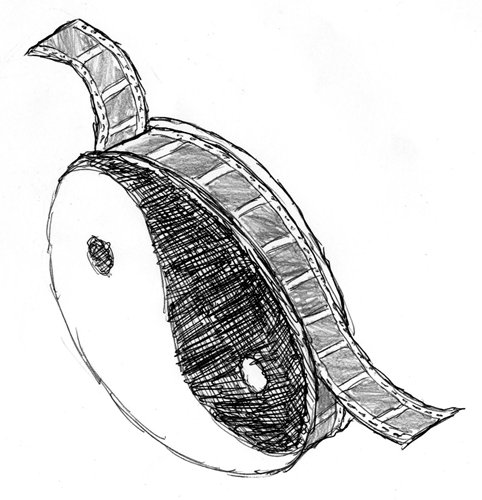
Illustrations: Peter C. Espina/GT
Chinese TV anchor Cui Yongyuan is being hailed as a hero for exposing alleged tax evasion in China's entertainment industry.
The dust was kicked up last week when Cui published two posts on his Sina Weibo account, the Chinese equivalent of Twitter. In the first post, Cui posted photos of a contract belonging to actress Fan Bingbing, best known for her role as Blink in the Hollywood movie X-Men: Days of Future Past.
According to the contract in which the actress' name could be seen, Fan would be paid 10 million yuan (about $1.56 million) for an acting job. But in the second one, Cui posted a picture of what seems to be another contract - no details were shown, but he claimed it was a dual contract related to the first one and had a signing amount of 50 million yuan.
Although Fan was not named in the post, speculation swirled that she was using separate agreements to avoid paying tax.
Cui later told media the second contract did not belong to Fan, but insisted dual contracts did exist in the entertainment business. "I have a drawer full of contracts. The government should tighten regulations for show business," Cui asserted. He claimed a pair of dual contracts he has involve as much as 750 million yuan.
Dual agreements, also called "yin-yang contracts," are a common practice to avoid paying taxes, in which high-income earners secretly pocket the money from a higher-value contract but submit the lower figures to authorities.
Cui's revelations have sparked an online storm and garnered extensive support from the public. "How can they on the one hand evade taxes while on the other pocket huge benefits?" a netizen asked.
Recent years have seen increasing public discontent with the stunningly exorbitant remuneration paid to stars in the entertainment industry. Chinese authorities passed guidelines last year to cap actors' paychecks at 40 percent of the total production cost and mandated that leading actors' salaries cannot exceed 70 percent of the casting budget. But the practice of "yin-yang contracts" has rendered the regulations meaningless.
Cui's claims have given an idea that many in the entertainment business have unscrupulously trampled tax law. It is a matter of social justice and rule of law. Celebrities, as a high-income group under the spotlight, should be particularly self-disciplined. Today's superstars, who have won fame and status through years of efforts, should cherish their hard-won popularity and fulfill their obligation to pay taxes. Those evading taxes, no matter how famous, should be subjected to opprobrium.
Amid public uproar, the State Administration of Taxation ordered the relevant bureaus to "investigate and verify online allegations that TV and film actors evaded taxes by signing two contracts," adding that anyone found guilty of breaking the law will be "punished accordingly." An impartial and thorough investigation into the practice is expected.
China has planned to develop the cultural industry into a pillar of the national economy by 2020. It's imperative to regulate the distorted and scandal-ridden business. Strong action is needed to pull it back onto the right track.
The author is a reporter with the Global Times. opinion@globaltimes.com.cn

